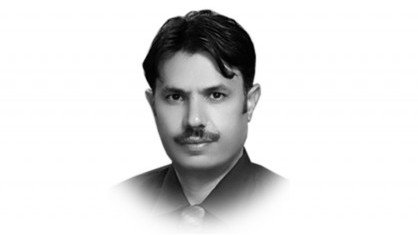
The issue behind the militancy remains and this has to do with the gulf between the haves and the havenots. This is not to say, as some people have claimed, that it is a class war per se but rather that there are issues of class, as well as socio-economic background of the people, which have combined to create an atmosphere where mullahs exploited the resentment amongst a large section of the population against those seen as privileged.
For example, most of those who turned toward militancy are ‘khwar’ or ‘landless’ Pakhtun. In Swat most of the land is owned by a handful of people and they own much of the wealth of the forests as well. Those who live in the hilly areas usually do not own land except the house that they live in — and most are peasants working with landlords who own fields and orchards in the valleys below.
As is bound to happen, disputes arise between the landlords and their peasants and these go to court, where they are left pending for years. And hence there is a demand for Sharia or Qazi courts, which has had much support especially from the average not-so-rich Swati.
Another reason for the resentment is widespread corruption, which is seen by some as the key reason for the success of the militants in gaining recruits. An ordinary citizen cannot speak to even a government clerk let alone an officer. As is the case in much of the country, the local administration is at the beck and call of the landed elite and this creates further resentment.
In the 2002 elections most of the seats were won by the MMA alliance and in this election it was all the landed elite — out of seven MPAs from the district only one is from a middle class background. In the wake of the conflict, a large number of humanitarian organisations have come to Swat to contribute in the relief and development. Local MPs have spared not even these organisations and the latter have in many cases had to give goods to the supposed voters of these MPs. In addition to this, many of the militants who are not behind bars were not hardcore in that they had only joined the Taliban out of fear. Either they should be tried in a court of law or they should be released and allowed to get on with their lives. The bottom line is that much of what was happening in Swat prior to the militants gaining ground is still there so how are we expected to see a permanent peace?
Published in the Express Tribune, May 14th, 2010.



1732256278-0/ellen-(1)1732256278-0-165x106.webp)
1725877703-0/Tribune-Pic-(5)1725877703-0-165x106.webp)
1732257537-0/Copy-of-Untitled-(64)1732257537-0-270x192.webp)
1726722687-0/Express-Tribune-Web-(9)1726722687-0-270x192.webp)










COMMENTS (2)
Comments are moderated and generally will be posted if they are on-topic and not abusive.
For more information, please see our Comments FAQ